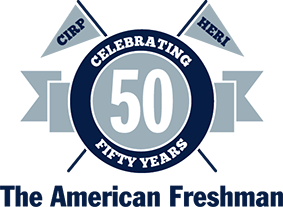
More college freshmen than ever before are aspiring to postgraduate degrees, and interest in majoring in the biological and behavioral sciences (BBS) or in fields related to science, technology, engineering, and mathematics (STEM) has nearly doubled in the last 15 years, and interest in majoring in chemistry has made a complete recovery from a historic low 10 years ago (Pryor, Hurtado, Sáenz, Santos, & Korn, 2007). Over thirty years of National Institutes of Health (NIH), National Institute of General Medical Sciences (NIGMS), and National Science Foundation (NSF) program funding for students and institutions was intended to influence student career plans and prepare them for STEM and behavioral science research careers during college. This study seeks to address the unique college and graduate school experiences of underrepresented racial minority (URM) students with the ultimate goal of assisting institutions in reducing racial/ethnic disparities in college faculty, research scientists and engineers, and health career professionals engaged in research.
Recent reports suggest that science degree completion and graduate studies leading to research careers are critical to national interests. It is important to identify and assess effective postsecondary contexts and interventions that promote diversity, access, and engagement in the sciences during college to not only retain students but also prepare science graduates for post-college pathways that lead to advanced studies and scientific research careers.
This line of inquiry is of further importance given that roughly half of those students who display an initial interest in majoring in science fields switch out of these programs within their first two years of undergraduate study, and very few non-science aspirants become science majors. The rates of science baccalaureate completion for underrepresented racial minority (African American, Hispanic/Latina/o, and Native American) students are even more dismal: only 24% of underrepresented students complete a bachelor’s degree in science in six years, compared to 40% of White students (Center for Institutional Data Exchange and Analysis, 2000).
Underrepresented racial minority (URM) STEM retention and preparation for graduate school are crucial steps in purposefully reversing the current trends and diversifying the scientific workforce. This project builds on earlier work that focused on the pre-college and college experiences of URM students in STEM and behavioral science (BBS) fields, extending this line of inquiry to examine students’ post-college pathways, including the link between undergraduate and graduate school experiences.


 POST-BACCALAUREATE EXPERIENCES, SUCCESS, & TRANSITION
POST-BACCALAUREATE EXPERIENCES, SUCCESS, & TRANSITION